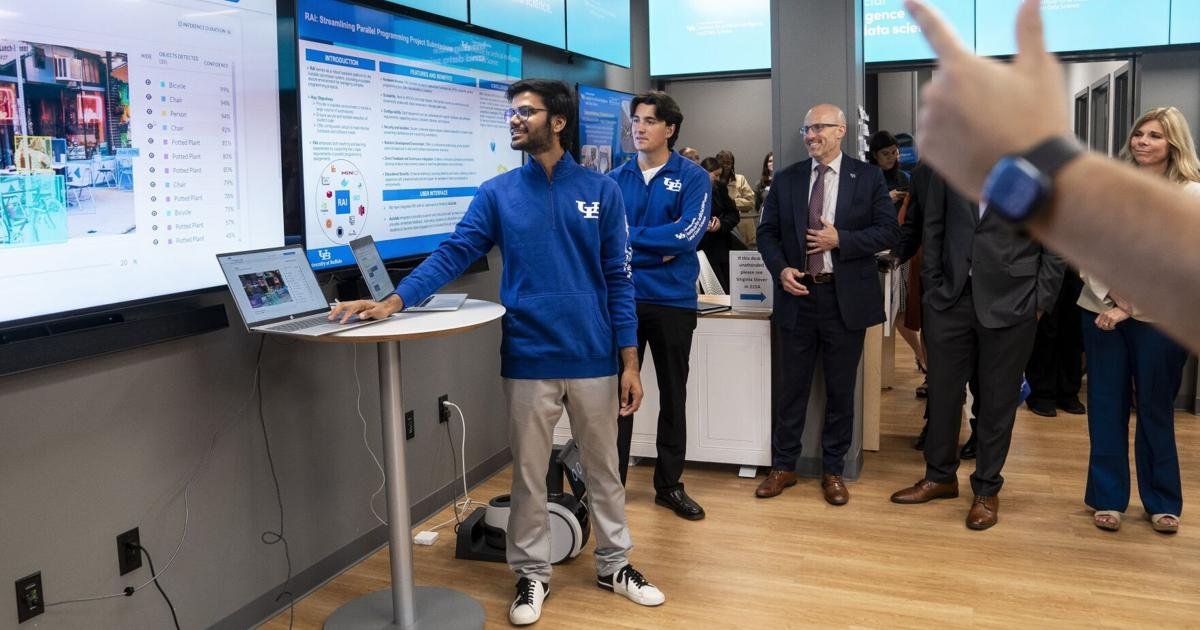Samsung Electronics and LG Electronics have launched an artificial intelligence (AI) home at the forefront to target the European market against the challenges of Chinese companies. The two companies unveiled major new products along with AI Home Vision at IFA 2025, Europe’s largest consumer electronics exhibition. Samsung Electronics held a “Samsung Press Conference” in Berlin, Germany, on the 4th (local time), a day before the opening. More than 800 people, including media and partners from around the world, attended the conference held at the City Cube Berlin, the exclusive exhibition hall in “Messe Berlin.”
“In the next three years, 1 billion AI devices will spread to households around the world,” said Kim Chul-ki, head of Samsung Electronics’ DA business division. “The Samsung AI home experience will become a daily life for customers at a fast pace like never before.” In a situation where AI is rapidly spreading to the home, Samsung’s leadership will be maintained.
With home appliance companies connecting smartphones and home appliances into one through various smart home applications, Samsung Electronics’ strategy is to build personalized AI by connecting its smartphone, TV, and home appliance ecosystem. Samsung Electronics aims for Ambient AI, which does not stand out to users, but provides customized experiences in real time by grasping the user’s environment and behavior patterns such as temperature, lighting, sound, and movement.
Typically, in the morning, you can check the weather and schedule through the “Now Brief” installed on your Galaxy smartphone and allow air conditioners and lights in your home to operate on their own according to your usual habits. In addition, through the ‘Family Care’ service, you can take care of your parents who live separately. If there are abnormal signs in the usage patterns of home appliances and smartphones in the house or if the motion is not detected for a certain period of time, a notification is provided to check the safety.
LG Electronics participated in IFA 2025 with the ‘LG AI Home Appliance Orchestra’ at the forefront. In this exhibition, LG Electronics introduced an AI home solution in which “LG ThinQon” connects home appliances, Internet of Things (IoT) devices, and external services to customize and coordinate various living elements of customers.
In everyday situations such as cooking, resting, and camping, “LG ThinQ On” not only controls home appliances and IoT devices in the house, but also demonstrates “ThinkQ Up,” which continues to upgrade new AI functions to existing home appliances with the AI home platform “LG ThinQ AI.” You can also experience services such as ThinkQ Care, which easily manages product conditions such as breakdowns and abnormalities.
In the case of the AI mobility space solution ‘Spilaum’ for vehicles, you can experience ‘LG AI Home’ that crosses your home and vehicle. You can also preheat the light wave oven mounted on the vehicle in the house with “LG ThinQ On,” or check the situation in the house through the home cam in the car and operate the robot cleaner. “IFA 2025 will be the starting point for the European home appliance market to be reorganized into high-efficiency home appliances and AI home solutions,” said Ryu Jae-chul, head of LG Electronics’ HS business division.
A total of 693 Chinese home appliance companies will participate in IFA 2025, accounting for one-third of all participating companies. In particular, TCL and Hisense are aggressively entering the European market with price competitiveness instead of the US, which is difficult to access. Our companies use AI Home as a means of differentiating them from Chinese companies.
[Reporter Lee Deok-ju in Berlin]























